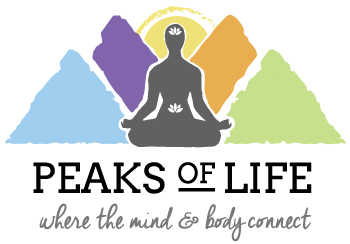Recently, I’ve been having conversations around the topic of forgiveness. It’s been interesting to hear other people’s views on the topic. It started when a woman recently shared with me that she was having a difficult time forgiving someone in her life. She was so angry and hurt by this person that she could not imagine how she could ever forgive him. I could see and hear how sad she was, how exhausted she was from having these feelings.
Then I was working with a client who was sharing with me an upsetting event that occurred from her childhood. When I brought up the topic of forgiveness, she became uneasy, tense and did not feel that she had anything to forgive since she was the one that was hurt.
Next, I was talking with my husband, Dave and he shared how he used to believe that forgiveness was a sign of weakness. He thought forgiveness meant he was not strong.
As I was processing these conversations about forgiveness I looked up the definition, which is to stop feeling angry or resentful toward someone for (an offense, flaw, or mistake). Sounds straightforward, right? Yes, but definitely not easy. I can recall unconsciously holding on to anger and resentment towards people and situations, in my past when I had felt I had been mistreated. Forgiveness is something I’ve had to consciously think about. I’ve learned that forgiveness is something you do for yourself, not for someone else. It has been freeing and healing to forgive and let go of the anger, resentment, and hurt I was holding onto. It got me thinking. Why do we sometimes have a hard time forgiving? Here are my thoughts:
- We believe that forgiveness is a sign of weakness. Forgiveness is not a sign of weakness, it is a sign of strength, it is an act of self-love, self-care. Although if you grow up feeling like you have to power through life to succeed or if you have the “don’t let them see you sweat,” mentality, it can cause you to associate forgiveness with weakness. This is how Dave felt. He thought if he expressed any forgiveness people would see him as weak and respect him less.
- We believe that when we forgive it means we are condoning what happened. This especially holds true when someone is physically and/or emotionally hurt or violated. Not allowing yourself to forgive and holding on to the anger and resentment is only hurting yourself. In these situations, it may be forgiving yourself because you blamed yourself, or you believed that you did something wrong and you deserved it. Maybe it is forgiving the person or situation. It does not mean you are okay with what happened. The act of forgiveness is for you, no one else. It is a gift you give yourself.
- We take things personally when it is not. When someone mistreats us or says something to hurt our feelings, it has nothing to do with you. More than likely something is going on in the other person’s life and they’re not happy. For example, the woman that shared she was having a hard time forgiving, has a partner with a history of addiction. He struggles daily and makes poor life choices that not only negatively impact the ones he loves, but also himself. It does not excuse his actions, but it can help explain why he acts the way he does. It can help you begin the process of forgiving, which remember is to stop feeling angry or resentful toward someone. It doesn’t mean you are weak, it doesn’t mean you are okay with the way you were treated.
- We hold onto the hurt feelings for so long that it becomes a habit and forgiveness is no longer on our radar. The client who became tense at the thought of forgiving something that occurred in her childhood has held on to the resentment for so long it never occurred to her that it may benefit her to forgive. For her to become physically and emotionally triggered so quickly by something that occurred over 20 years ago shows how not forgiving is continuing to hurt her.
When we forgive we can lessen the time we spend feeling angry and hurt. As you can see, these feelings not only affect us emotionally but can also affect us physically. I know I am still guilty of not forgiving in certain situations. It is normal to feel some resistance to forgive depending on the situation.
Can you think of a situation or a person you are having a difficult time forgiving? When you think about this situation or person do you immediately feel the anger and resentment?
If you answered yes, I’d like to challenge you a bit. I’d like to walk you through a process with me that can help you open up to forgiveness when it may feel difficult or impossible.
To start, briefly think about the situation or person you are having a difficult time forgiving. Now tune in to how this situation, the person makes you feel. Do you feel angry, sad, mad, rage, hopeless?
Give yourself permission to imagine what it would feel like to forgive the situation or person for a short time period. For example, start a timer for 5 minutes. Close your eyes, take a deep breath in, let it out. Imagine how it would feel to let go of the hurt, the anger, the sadness, the loss, the resentment, the rage, the hopelessness, etc. Take another deep breath in, let it out and imagine replacing those feelings with self-love, peace, ease, freedom, kindness, compassion, etc. Keep taking deep breaths in and out until your timer goes off.
How did it go? Did it feel good? Did it feel difficult? If it did feel difficult, that is okay. Forgive yourself and try again another time. If you were able to feel the difference. That is great. Next time increase the timer to 10 minutes. There is no right or wrong. Simply be open, be curious and be kind to yourself.
“Forgiveness is giving yourself a gift. It is not something you give the other person, it is what you give yourself.” Maya Angelou

